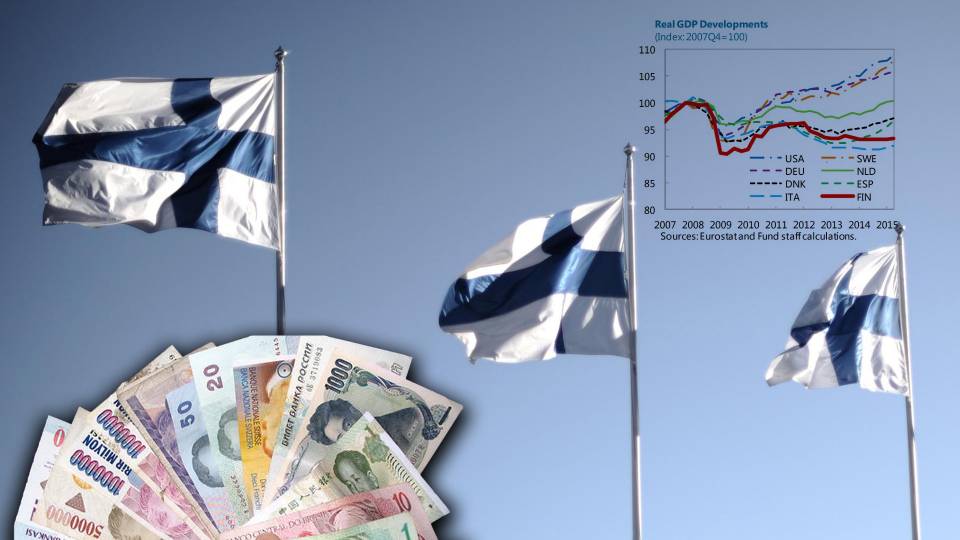Finland's depression is the final indictment of Europe's monetary union
Finland has lost a quarter of its industry since 2008 even though it is the poster-child of EMU competitiveness
Finland is sliding deeper into economic depression, a prime exhibit of currency failure and an even more unsettling saga for theoretical defenders of the euro than the crucifixion of Greece.
A full six-and-a-half years into the current global expansion, Finland's GDP is 6pc below its previous peak. It is suffering a deeper and more protracted slump than the post-Soviet crash of the early 1990s, or the Great Depression of the 1930s.
Nobody can accuse Finland of being spendthrift, or undisciplined, or technologically backward, or corrupt, or captive of an entrenched oligarchy, the sort of accusations levelled against the Greco-Latins.
The country's public debt is 62pc of GDP, lower than in Germany. Finland has long been held up as the EMU poster child of austerity, grit, and super-flexibility, the one member of the periphery that supposedly did its homework before joining monetary union and could therefore roll with the punches.
Finland tops the EU in the World Economic Forum’s index of global competitiveness. It comes 1st in the entire world for primary schools, higher education and training, innovation, property rights, intellectual property protection, its legal framework and reliability, anti-monopoly policies, university R&D links, availability of latest technologies, as well as scientists and engineers.
Its near-perfect profile demolishes the central claim of the German finance ministry - through its mouthpiece in Brussels - that countries get into bad trouble in EMU only if they drag their feet on reform and spend too much.
The country has obviously been hit by a series of asymmetric shocks: the collapse of its hi-tech champion Nokia, the slump in forestry and commodity prices, and the recession in Russia.
The relevant point is that it cannot now defend itself. Finland is trapped by a fixed exchange rate and by the fiscal straightjacket of the Stability Pact, a lawyers' construct that was never intended for such circumstances. The Pact is being enforced anyway because rules are rules and because leaders in the Teutonic bloc have an idee fixee that moral hazard will run rampant if any country in the EMU core sets a bad example.
Finland's output shrank a further 0.6pc in the third quarter and the country's three-year long recession is turning into a fourth year. Industrial orders fell 31pc in September. "It's spooky," said Pasi Sorjonen from Nordea.
Sweden was able to navigate similar shocks by letting its currency take the strain at key moments over the last decade. Swedish GDP is now 8pc above its pre-Lehman level.
The divergence between Finland and Sweden is staggering for two Nordic economies with so much in common, and it has rekindled Finland’s dormant anti-euro movement.
The Finnish parliament is to hold ‘Fixit’ hearings next year on exit from monetary union and a return to the Markka, the currency that saved Finland in the early 1990s (once the ill-judged hard-Markka policy and the fixed ECU-peg was abandoned).
Paavo Väyrynen, a Euro-MP and honorary chairman of the ruling Centre party, forced the euro hearings onto the parliamentary agenda after collecting 50,000 signatures. “The eurozone is not an optimal currency area and people are becoming aware of the real reasons for our crisis,” he said.
“We are in a similar situation to Italy and have lost a quarter of our industry. Our labour costs are too high,” he said.
Voters in Sweden and Denmark stopped their governments abolishing their ancient currencies. Finnish voters were never given a referendum. The decision to join the euro was rammed through against widespread opposition, and was camouflaged as a national security issue.
Read the rest: telegraph.co.uk






















